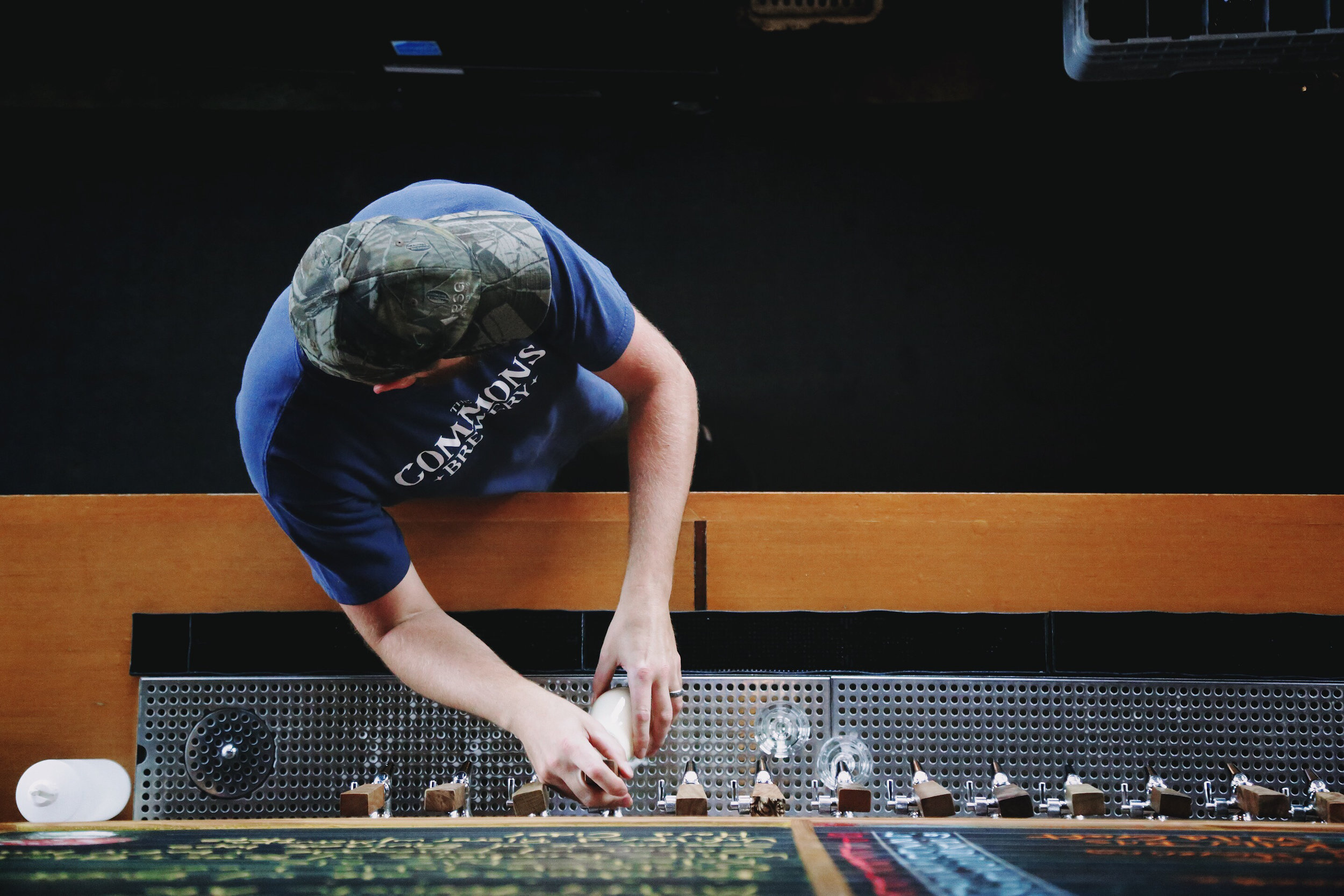THE GIST
Southern California’s Modern Times Beer is building on its success in the Pacific Northwest by expanding to Portland, Oregon where it will take over a spot currently occupied by struggling homegrown beer maker, The Commons Brewery. The move gives Modern Times a foothold in a region that it says to date has offered it a level of “acceptance and warm welcome” and helped contribute to its own capacity constraints at home in San Diego. Meanwhile, The Commons is given a way out after two years of failing to overcome slow sales and cash flow issues.
WHY IT MATTERS
To quickly dispel the most likely presumption that inevitably comes with this type of news, the two sides emphasized that this isn’t an acquisition of any kind. Rather, Modern Times is leasing the 10,000 square foot space from Commons owner Mike Wright who owns the building at 630 SE Belmont. So what’s next for all involved?
Modern Times says it plans to shut down the space at the beginning of 2018 in order to install new equipment and do some redecorating before ultimately reopening as the Belmont Fermentorium—branded in the same light as its Lomaland Fermentorium tasting room—with a year-one capacity of about 7,000 barrels. This, the company says, will free it up to serve “fresher, better, locally-brewed beer” for drinkers in Oregon, Washington, and Idaho. Furthermore, the company says it has also signed a lease on a neighboring building of the same size to host a packaging hall and additional tanks. Between the two, the company anticipates ultimate capacity to reach 20,000 barrels.
The Commons’ future is much less clear, however. The company is ceasing operations to give way to Modern Times, but Wright says he hopes it’s not a permanent closure, adding he’s “motivated to find a pathway forward” for the business.
“Unfortunately, this is a classic small business cash flow story,” he says. “Sure, there is plenty of industry nuance and hindsight that can be evaluated, but this boiled down to simple debits and credits. That’s the sinister simplicity of a cash flow problem. Your debt is clearly defined, but revenue is a rollercoaster. The belief was that we’d eventually break out and get past those challenges. We did not.”
The company’s struggles laid bare here are interesting, too, given its own status in the brewery-rich city. In fact, in its own reporting on the news, the Oregonian gave the company credit for producing “one of Portland’s signature beers” in Urban Farmhouse Ale. The news also comes just a little more than a month after the Willamette Week ran an item headlined “Portland’s Commons Brewery Very Quietly Lost its Head Brewer – and for the moment, no one’s talking.” The paper called the sudden departure of head brewer Sean Burke “one of the skull-scratchers of the summer” and suggested his exit had an “unceremonious” tinge to it.
Meanwhile, Beervana blogger and occasional GBH contributor Jeff Alworth asked the question everyone seems to be asking: "why did a brewery making such interesting, high-quality beer fail to make it in Portland when so many mediocre ones succeed?" His answer? "It was the Velvet Underground of breweries, making exceptional beer most people didn't understand… But a bigger problem, I think, was their failure to brag." His whole insightful post is worth a read.
None of this, of course, is lost on Modern Times. Reached by GBH, founder Jacob McKean says he undertook this process with a “heavy heart.”
“But the reality,” he adds, “is that at this point in time, leasing the space from Mike is the best way for us to continue supporting The Commons.”
Regardless, the unfortunate trajectory of the Commons raises some interesting questions for Modern Times. Perhaps paramount among them: what gives the San Diego brewery the confidence to stand out in a highly competitive and crowded market? McKean says it’s largely about his brewery’s culture being compatible with that of Portland’s, despite being non-native to the area.
“From our brewing style and quality, to our emphasis on design, to our progressive business practices (employee-ownership, voluntary $15/hr minimum wage, extremely robust benefits), I just think we share a lot of values with Portland,” he says. “And we've really been embraced by both bars and beer drinkers in the short time we've been distributed up here, so that seems to have resonated with folks.”
So for now, the story stands mostly as proof that where one falters another can emerge. We’ll see how it develops in the months and years to come.
—Dave Eisenberg


